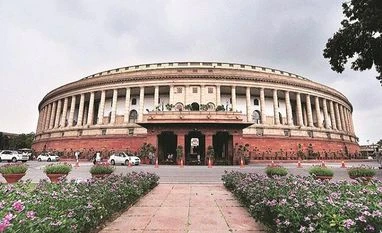In a bid to address weaknesses in cooperative banking sector, the Parliament is likely to clear a Bill to amend Banking Regulation Act to bring multi-state cooperative banks under effective regulation of RBI during the Budget session.
The proposed legislation will help prevent a repeat of Punjab and Maharashtra Cooperative Bank-like crisis, sources said.
There are 1,540 cooperative banks with a depositor base of 8.60 crore having total savings of about Rs 5 trillion.
The Union Cabinet headed by Prime Minister Narendra Modi last month gave approval to amend Banking Regulation Act.
The Bill in this regard is likely to be passed during the second leg of Budget session starting Monday. The session ends on April 3.
Having undertaken a slew of measures, including clean up of public sector banks (PSBs), private sector banks, financial institution like IL&FS, non-bank financial corporations (NBFCs), housing finance corporations (HFCs), auditors, rating agencies, this is the last step in making the entire financial ecosystem almost impossible to be gamed, with security of depositors' money being paramount.
To further bolster the confidence of customers, the government has increased deposit insurance cover by five-fold to Rs 5 lakh to ensure security of public money in banks.
In the last couple of years, the Department of Financial Services has taken several steps to promote responsive and responsible banking.
As part of clean banking initiative, project cash flows were ring-fenced, enforcement of terms of loan agreements and prior validation of backward and forward linkages were made integral to lending processes.
Besides, the number of banks in loan consortium was capped, reducing borrowers' ability to play one lender off against another.
This was accompanied by data driven risk scoring and scrutiny, comprehensive diligence across data sources and strengthened credit assessment.
To ensure financial health of public sector banks (PSBs), recapitalization of Rs 4 trillion was undertaken in the last five years. Provision coverage ratio reached a record high of 77 per cent. NPA and slippages are declining with improved asset quality.
As a result of various initiatives taken by the government under Rajiv Kumar, who demitted office as Financial Services Secretary on February 28, the number of PSBs under Prompt Corrective Action (PCA) is down from 11 in 2017 to four.
As many as 12 out of 18 banks are in profit this year as against 19 out of 21 in loss just two years ago with the help of record recovery and reduction in bad loans.
Before joining the Finance Ministry, Kumar was Establishment Officer in Department of Personnel and Training.
He was instrumental in many initiatives including streamlining of promotion and appointment process done by the Appointments Committee of the Cabinet (ACC).
You’ve reached your limit of {{free_limit}} free articles this month.
Subscribe now for unlimited access.
Already subscribed? Log in
Subscribe to read the full story →

Smart Quarterly
₹900
3 Months
₹300/Month
Smart Essential
₹2,700
1 Year
₹225/Month
Super Saver
₹3,900
2 Years
₹162/Month
Renews automatically, cancel anytime
Here’s what’s included in our digital subscription plans
Exclusive premium stories online
Over 30 premium stories daily, handpicked by our editors


Complimentary Access to The New York Times
News, Games, Cooking, Audio, Wirecutter & The Athletic
Business Standard Epaper
Digital replica of our daily newspaper — with options to read, save, and share


Curated Newsletters
Insights on markets, finance, politics, tech, and more delivered to your inbox
Market Analysis & Investment Insights
In-depth market analysis & insights with access to The Smart Investor


Archives
Repository of articles and publications dating back to 1997
Ad-free Reading
Uninterrupted reading experience with no advertisements


Seamless Access Across All Devices
Access Business Standard across devices — mobile, tablet, or PC, via web or app
)

